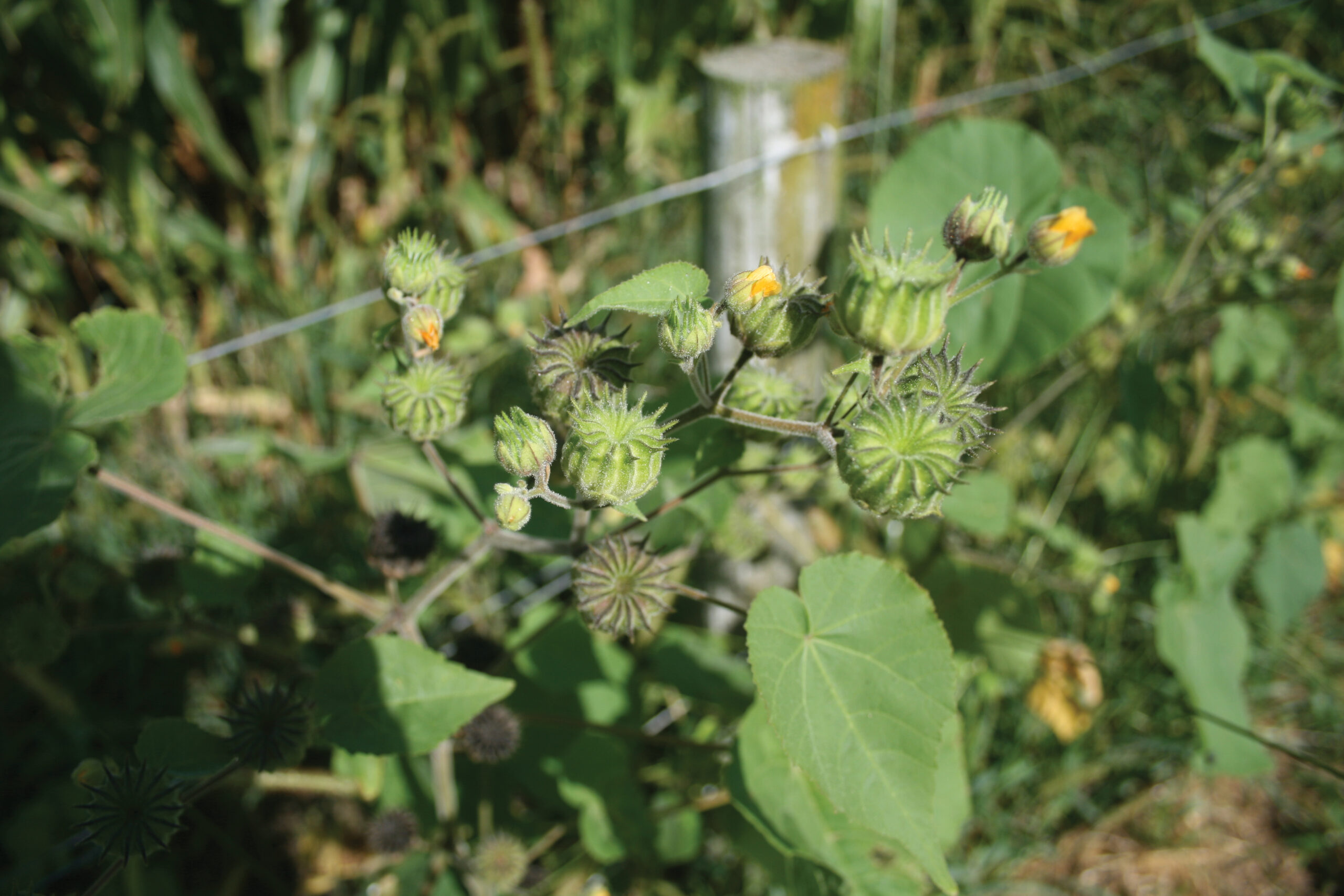By Guest writer,Sally Linton. Linton
Copyright farmersweekly

Reading Time: 3 minutes
By Sally Linton. Linton is the North Island velvetleaf coordinator for FAR and North Island regional councils.
New Zealand’s farms are more than just a source of pride, they’re the backbone of our farming communities and economy.
But across every paddock and at every fence line, weed pests threaten to undermine the hard work of generations.
Among these, velvetleaf stands out as a cautionary tale of how a single invasive weed can jeopardise livelihoods, crop yields, and even our international reputation.
Velvetleaf (Abutilon theophrasti) is a fast-growing invasive weed that’s become a significant issue in New Zealand’s cropping regions.
This broadleaf plant can reach up to 2.5 metres tall, with heart-shaped leaves and yellow-orange flowers.
It reproduces rapidly, producing thousands of seeds per plant, each capable of lying dormant in soil for decades.
While velvetleaf has been found in the Auckland and Waikato Regions since the early 2000s from an unknown incursion, more recently the plant pest entered the country through contaminated fodder beet seed in 2016.
Its incursion demonstrates how quickly a single oversight in biosecurity can spiral into a nationwide problem.
As velvetleaf is mechanically spread, the biggest risk to a farmer is machinery or purchased feed coming in the farm gate.
Velvetleaf competes aggressively with any crop, such as maize or fodder beet, stunting their growth and cutting yields if not controlled.
Its presence can contaminate harvests and lower the value of crops. It is an unwanted organism under the Biosecurity Act, so crops infected by it cannot be sold.
Managing velvetleaf adds extra costs and time to farm operations, with infestations requiring ongoing attention for many years.
While the velvetleaf incursion underscores the importance of strict biosecurity checks at the border on imported seed, preventing ongoing spread requires farmers to control what comes, and goes, through their farm gate.
Early detection, and prompt action are critical for any unwanted weeds.
Farmers who discover velvetleaf on their properties and report it promptly enable a coordinated effort to limit its spread.
However, prevention is better than cure and velvetleaf highlights the ongoing challenges of weed management with seeds that can lie dormant for decades.
Biosecurity isn’t just a set of guidelines, it’s an essential responsibility. It means keeping our farms safe from unwanted pests, diseases, including invasive weeds.
Unchecked, weed pests outcompete crops, lower yields, contaminate seed lines, and cost millions to control. For arable and pastoral farmers alike, weed biosecurity is fundamental to protecting land productivity and business viability.
What can farmers do about weed biosecurity?
• Check feed purchases. Only buy feed from trusted suppliers and, if possible, walk the crop prior to harvest.
• Farmers can also monitor their land. Regularly walk your paddocks and boundaries. Look for unfamiliar plants, especially after planting.
• Report unusual seeds: If you spot a suspicious weed, especially something resembling velvetleaf, report it immediately to the Ministry for Primary Industries or your regional council. Early reporting helps everyone.
• Clean machinery and equipment. Make sure tractors, harvesters, and contractors are washed down between properties to avoid spreading weed seed.
• Keep good records. Note where different seed lots are sown and track any weed outbreaks. This makes long-term management easier and assists with tracing the source.
Biosecurity doesn’t just occur at New Zealand’s border – it’s about being proactive against all types of biological threats, including weeds. By learning from the velvetleaf experience, New Zealand farmers can better protect their own land and the country’s agricultural future.
Remember, a single plant today can mean thousands more tomorrow.
If you suspect you’ve found velvetleaf or any unusual weed, contact MPI at 0800 80 99 66 or your regional council.
Every vigilant farmer is a vital link in the biosecurity chain, safeguarding not just their paddocks but all New Zealand.



